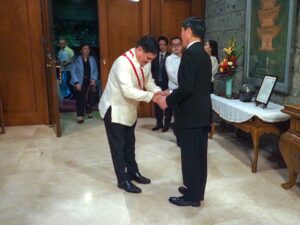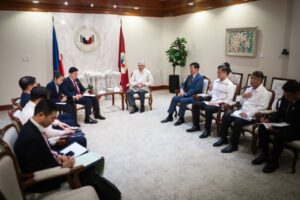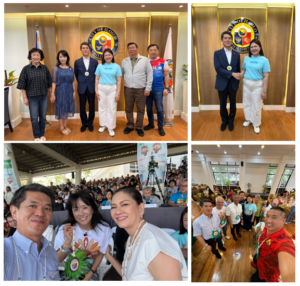With the recent concurrence of the Senate on the ratification of the Regional Comprehensive Economic Partnership (RCEP) agreement, the Philippines is set to seize opportunities in the largest free trade area in the world.
According to Department of Trade and Industry Secretary Fred Pascual, more than the fact that the RCEP region is the biggest trade bloc in terms of trade, GDP, and population, the region is also the center of economic activities in Asia. It accounts to 50% of the global manufacturing output, 50% of global automotive products, 70% of electronic products, and the main global value chain (GVC) hubs of China, South Korea, and Japan.
“Given this extent of economic activities, there are a lot of opportunities that foreign investors and local businesses can seize, explore, and develop, especially in the manufacturing sector and innovation,” Secretary Pascual said.
At present, the Philippines has the necessary foundation to support a robust innovation ecosystem, from a strong intellectual property regime, the passage of the Philippine Innovation Act and Innovative Start Up Act, establishment of Regional Inclusive Innovation Centers (RIICs), and a number of Innovation and Technology Support Offices (ITSOs) around the country.
Secretary Pascual also stressed that as the Philippines positions itself as an innovation hub in the region, the country has to encourage more investments in green technologies, energy, logistics, smart agriculture, and information technology. He likewise emphasized that the growing e-commerce industry is an opportunity for the Philippines to grab its niche in the digital economy, especially noting its strength in the IT-BPM sector, young and skilled professionals, and the country’s strategic location.
Incidentally, Senate President Pro Tempore Loren Legarda who co-sponsored the concurrence of the RCEP Agreement with Senate President Migz Zubiri, was the principal author of the Philippine Innovation Act. She has maintained that innovation and competitiveness are vital strategies towards pursuing sustainable economic growth.
Senator Legarda said, “Now that the country has to embark in a bigger trade and investment arena, it is incumbent upon us to fully implement the Philippine Innovation Act and ensure that it is adequately funded and the pressing needs of the various sectors, particularly MSMEs, are properly addressed.”
Legarda also stressed, “While we work towards encouraging more investments and economic growth, we have to ensure that growth is inclusive, and investments generate quality jobs and opportunities for others.”
For his part, Senate President Zubiri underscored the need to fully utilize the RCEP Agreement so that the Philippines will not be left out in the competition. Thus, it is incumbent upon the Executive Department to intensify its education and promotion campaign on the utilization of Free Trade Agreements (FTAs).
“We have to bear in mind that what will determine losers and winners in an FTA depends on the utilization of the parties. If stakeholders will not utilize the FTA and find their comparative advantage, then they will be adversely affected by the competition. In this case, the RCEP Agreement is just a policy tool and we have to continuously empower our local stakeholders to avail of its advantages,” Senator Zubiri explained.
To pave the way for the immediate concurrence of the RCEP agreement, Senators Zubiri and Legarda initiated the establishment of an oversight committee to address the issues and concerns of some of the oppositors. The oversight committee will not only monitor the implementation of the RCEP agreement but also the adoption and implementation of necessary measures so that the country can take full advantage of the country’s participation in RCEP.


